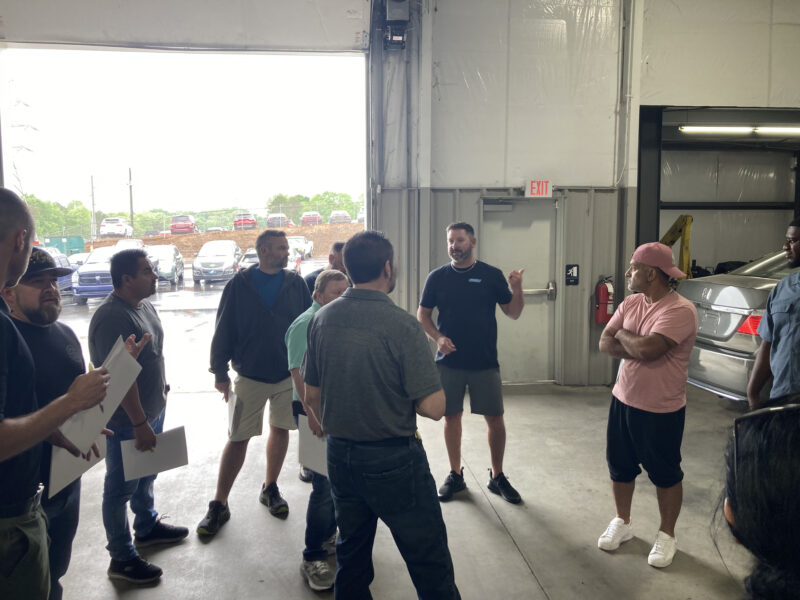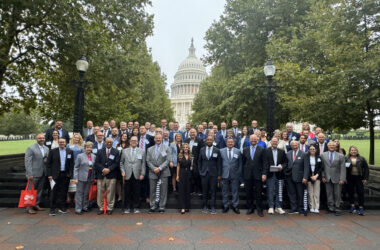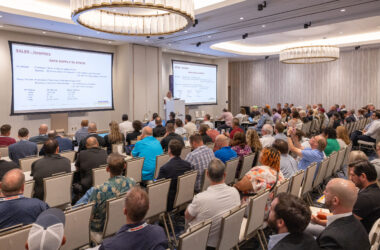From the July issue of UCD
By John Dismukes
This month, I sat down with Alan Johnston of Tech 3 Service/Recon Center, which is a part of E-Z Way Auto Sales in Hickory, North Carolina, to discuss a common problem experienced by many independent car dealers – the recruitment, hiring and retention of automotive technicians.
John Dismukes: How would you describe the current staffing landscape in your service department? Are you fully staffed? Are you feeling a little pressure to bring on more techs?
Alan Johnston: For our workload, we are fully staffed. But if I were measuring on capacity, I have room for two or three more. Finding techs for that is something that we’re laser-focused on. We’re waiting for the right exact tech to come into those positions.
JD: What is the biggest challenge that you face in hiring qualified tech auto technicians today?
AJ: Probably the competitiveness. If you get somebody willing to move or you’ve captured somebody’s attention, it’s getting them to get here before their current employer can offer them something crazy. You know, there are a lot of good technicians, but their tenure keeps them stationary, and it’s hard getting them to come over.
JD: Have you found that when you are recruiting a technician and their current employer finds out they’re getting ready to come over to you that they kind of sweeten the pot?
AJ: Oh yeah, every time. I’ll even give him a move your toolbox bonus if they move their box that day when we agree.
JD: Have you found that that helps?
AJ: Every once in a while. But you know, there are a lot of loyal people who want to work their two-week notice and I respect that 100 percent.
JD: How has the demand for skilled technicians evolved over the last five years?
AJ: Culture has changed so much that good technicians, a lot of seasoned veterans, are just aging out of it. But there’s a new group of automotive technicians coming that’s very, very educated and very good.
JD: What traits or qualifications do you prioritize when you’re evaluating potential technicians?
AJ: Number one, that they have the will to learn and the will to want to grow their skill base. That they can communicate well. That they can be here from 8 to 5 and work a 40-hour week. That is on the entry level. A/B technicians must have their own toolbox. A tech should have their own diagnostic equipment.
JD: How do you compete with the other dealers and other independent shops for the talent that you’re looking for?
AJ: With our recon facility, we have endless amounts of work. The work never stops, so that’s what sets us apart. Our technicians are not going to have to wait for the next customer to come through the door. We play flat rate, and they can turn as much as they want. We always say we’ve got an ATM sitting out back. How much do you want to make?
JD: Let’s talk about your relationship with the local community college and how that plays into your recruitment pipeline?
AJ: One of our seasoned technicians who’s been with us for a long time, who’s moving up in age. He had taken a job at our local community college in their auto tech department as an instructor at night. He brought his class here just to show them real-world stuff. The students are getting more hands-on, more versatile education out of our shop than they can working at a tire store or at a quick lube store. We hired one of the students, and the school caught wind of it. After we hired that student, we hired another one and another one. That was how our relationship started with the community college.
JD: Is there any advice you would give other dealers that may be reading this and want to build a similar connection with the local community college?
AJ: I would encourage anybody who has a community college or a high school that offers automotive technology to be involved as much as they can. Whether it’s donating problem cars for students to learn how to diagnose or if it’s hiring a student or two. These schools have the doors wide open for people in the industry to come in and help them do more.
JD: How do you keep your techs engaged and motivated? Especially the younger hires?
AJ: Retention starts with culture. Technicians have to feel their importance in the organization, and you, as an owner, have to be clear in your expectations of them. Sit down. Talk to them. Ask them, where do they want to be in six months? Where do they want to be in three years?
JD: What do you think the industry needs to do collectively to address the technician shortage that many independent dealers struggle with?
AJ: The industry should really be embracing the younger generation. They’re an information generation coming through where they have information, and they retain more information. They know how to get that information faster than anybody.
For example, if I hire somebody in their mid-30s to 40s, they think YouTube is a great source of information. If they want to know how something works, they go to YouTube.
YouTube takes roughly a minute to three minutes to get that information. These newer technicians whip out their phone, they go to TikTok, they search it and they have 15 videos in 15 seconds showing them a quick tutorial on how to reset that light, how to get that seal out, how to get that bearing out and they have the ability to process information so much faster.
JD: If you could give one piece of advice to a student entering the automotive technician field today, what would it be?
AJ: To be very intentional in building their skill set and not to be afraid to invest in technology.










